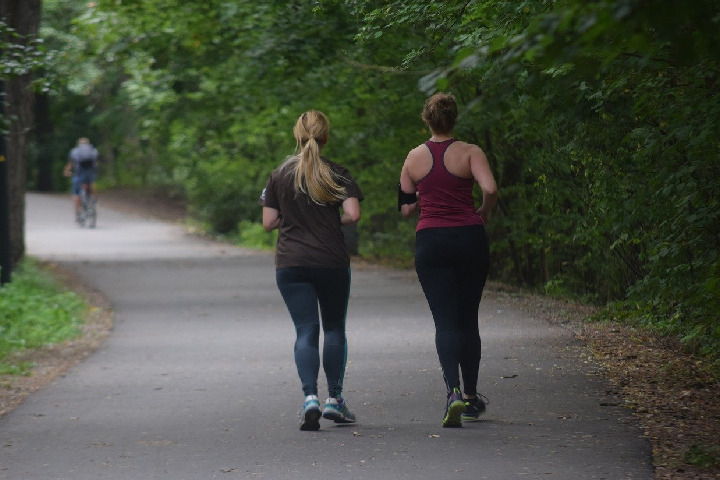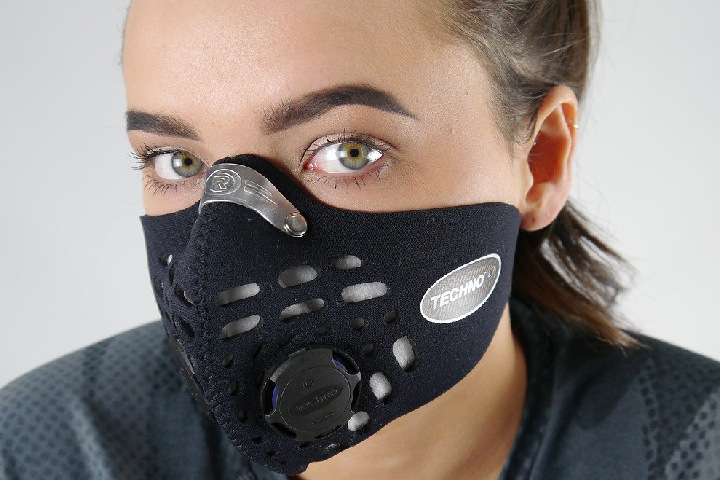Breathe Badly: We do it unconsciously, and perhaps that is the mistake. Adequate oxygenation is vital for our entire body, and it is a gesture to which we pay little attention (if we do not have any problems) when in reality, we should exercise it.
The revitalizing effect of adequate oxygenation is more than proven, but most people breathe badly and do not get as much oxygen as they should. Improving this aspect will give you years of good health.
Why Don’t You Breathe Well?
Most of the population breathe badly and uses only one-third of lung capacity. Studies show that poor oxygenation affects all health.
Keep in mind that in summer, you breathe worse. Heat makes the body, to maintain temperature, have to work harder and require more oxygen.
Also, high temperatures favour the accumulation of contamination, which makes breathing difficult.
Take Control of Your Breathing
Even if you find yours superficial, you can do a lot to correct those incorrect breathing patterns. It would help if you become aware of how you breathe:
Does your abdomen swell? Sit down and put one hand on your belly and one on your chest. If your stomach does not inflate when you take in the air, it means that the diaphragm does not move.
This means that this muscle (between the chest and the abdomen) does not flatten to press the ribs out and allow the lungs to expand to take in more air.

Do you yawn very often? Yawning may appear after taking shallow breathing for a while. In this case, it serves to “rebalance” the breath.
To find out if this is the case, see if your breathing changes after yawning.
Do you lift your shoulders when you breathe? This involuntary movement can help the body widen the rib cage and facilitate inspiration and air collection when it feels oxygen-deprived.
Do you sigh without thinking? Doing it slowly and then suddenly exhaling the air is also typical in people who do not breathe well.
Gestures that give you away: If you feel the need to stretch continuously (as if you were stretching), it may indicate that you need to widen the rib cage for a moment to allow the entry of oxygen because you breathe badly.
So You Can “Train” Your Breathing
Try to improve the lungs’ capacity, and following some simple life habits helps to support the health of those organs.
Table of Contents
1. Watch Your Posture, and You Will Breathe Better
Some postures allow the lungs to expand and improve air access to their interior: lying down, preferably use a pillow of medium height, and adopt a fetal stance, the most suitable to facilitate the movement of air within the body.
As you walk, keep your back straight and your gaze straight ahead to enable breathing and pace yourself as you walk.
For example, take a breath in one step, release it in two. When you are sitting, the posture that eases breathing is the one that allows you to support your entire back, ensuring that the spine is well aligned and the shoulders relaxed.
2. Lose Weight: Fat Affects the Lungs
And if that excess fat is also stored, especially in the abdomen, it is worse: this makes breathing difficult because it raises the diaphragm, which tightens the rib cage and limits lung function.
3. Walk First Thing in the Morning
A study published in the journal “Allergy” suggests that people with asthma who suffer from vitamin D deficiency are more prone to attacks and conclude that this vitamin helps them breathe better.

You can get it by exposing yourself to the sun first thing in the morning, ten minutes a day.
4. Clean Air at Home
The Environmental Protection Agency assures that the air you breathe at home can be highly polluted by the presence of radon, a gas of natural origin that comes from the disintegration of substances in rocks and soil.
With adequate ventilation and avoiding cracks and holes on low floors, it is avoided. There are air purifiers that help eliminate these toxins.
Also, check the humidity level: ideally, it should be 45%. If your skin or eyes dry out quickly, try adding humidifiers.
5. Avoid Breathing Toxic
Toxic gases and suspended particles (from paints, insecticides ) irritate lungs and bronchial tubes and facilitate respiratory disease development.
6. Maintain Good Hydration
The airways have to defend themselves from external pathogens, and they do so by generating mucus. Still, the body cannot manufacture that mucus correctly if it is not hydrated, so it is good to consider this.
Not surprisingly, dehydration is considered a risk factor for respiratory diseases, such as asthma and chronic bronchitis. Drink 8 glasses of water a day to protect lung tissues.
7. Foods That Help the Lungs
The egg and the intense red, green, or yellow vegetables contain vitamin A, which improves the respiratory membranes.
Citrus fruits, kiwi, tomato, and watercress provide vitamin C, protecting cells from toxins such as CO 2, nitrosamines from food, or free radicals.

We also agree with chard and almonds, as vitamin E is the best nutrient that strengthens the lungs and reduces serious lung disease risk.
The fish, seafood, and whole grains provide selenium, a substance like vitamin E, detoxifies heavy metals and toxic.
Zinc in legumes and brewer’s yeast protects cellular DNA and plays a vital role in expelling CO2 from the lungs.
8. Exercises That Strengthen Your Lungs
Sports such as gentle walking, swimming and running, and disciplines such as yoga, Pilates, and tai chi are best suited as they involve rhythmic and conscious breathing.
You can exercise your lung capacity at home by blowing up a balloon, for example, or by playing a wind instrument (you don’t need to know music).
There are even respiratory physiotherapy exercises practised with specialists in case of respiratory problems and illnesses, but which would also be a great benefit in healthy people.

